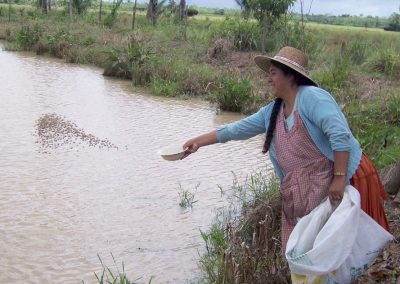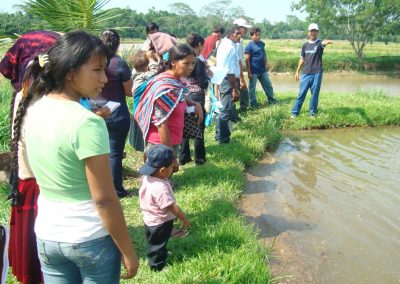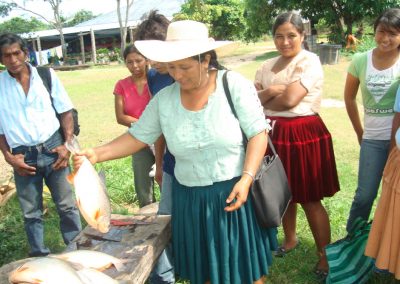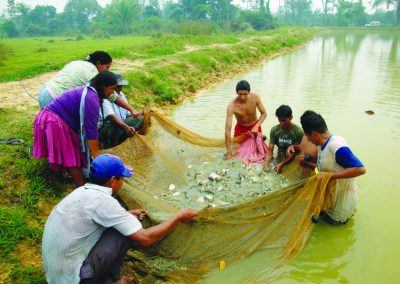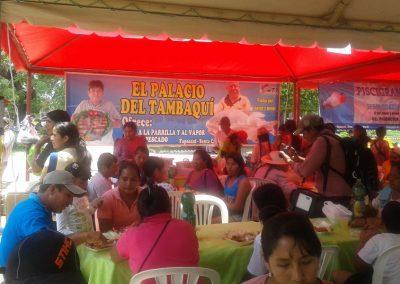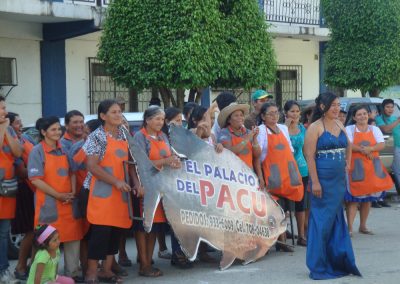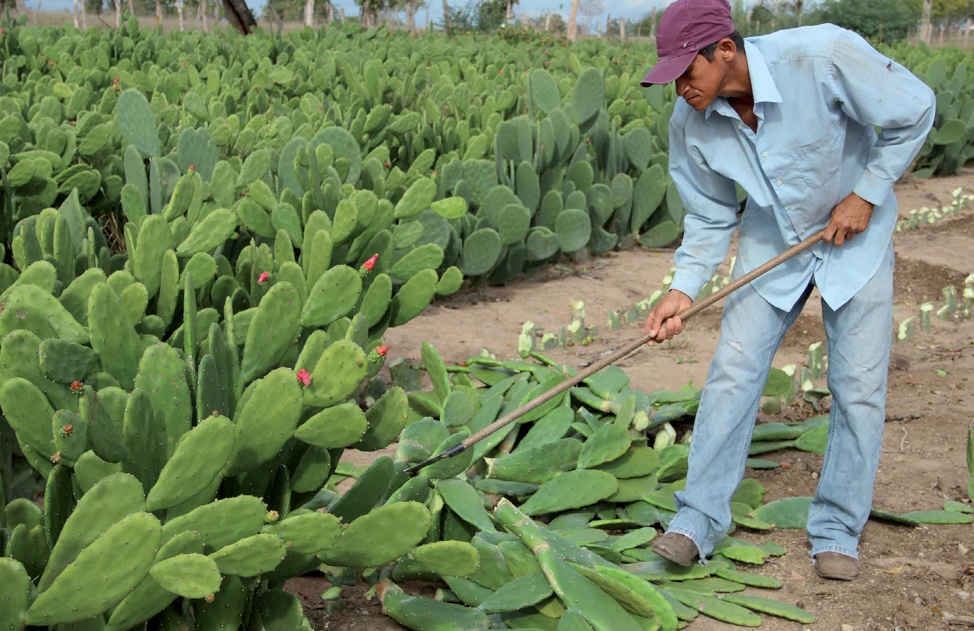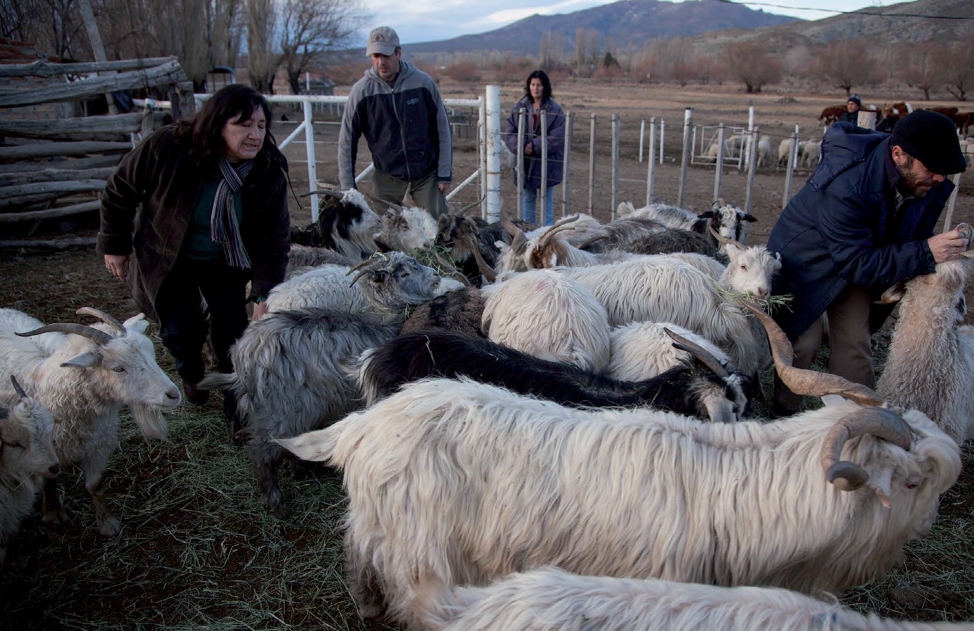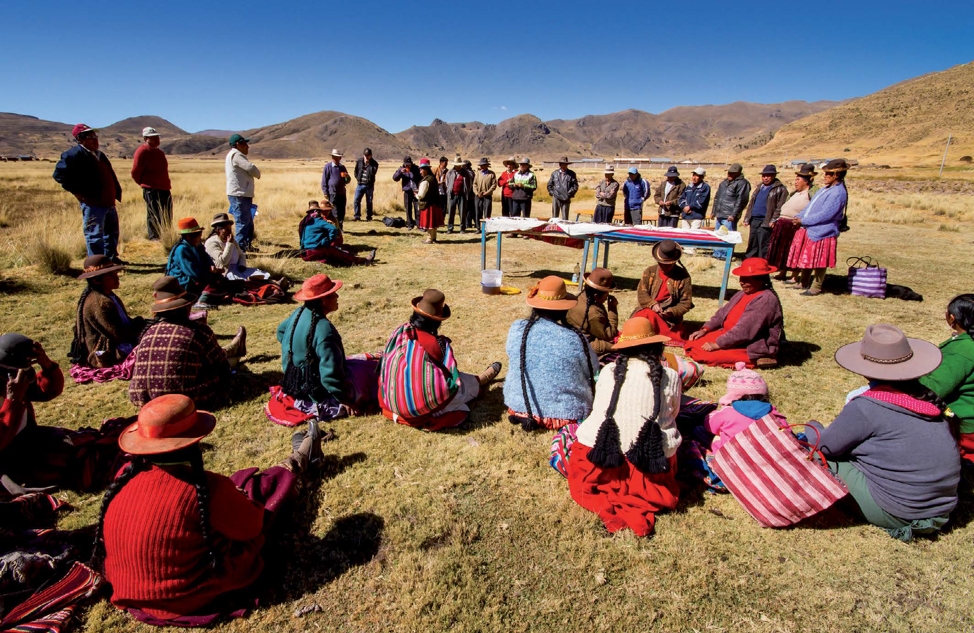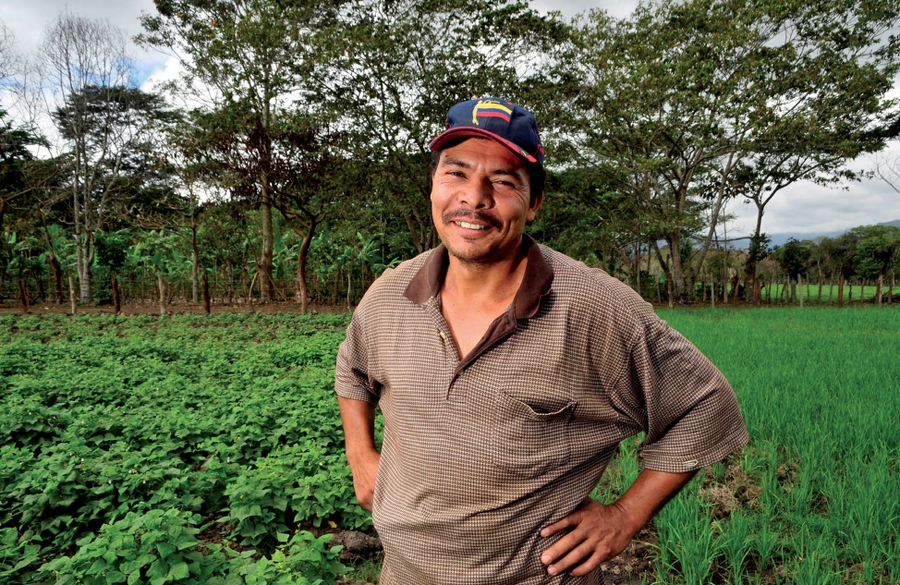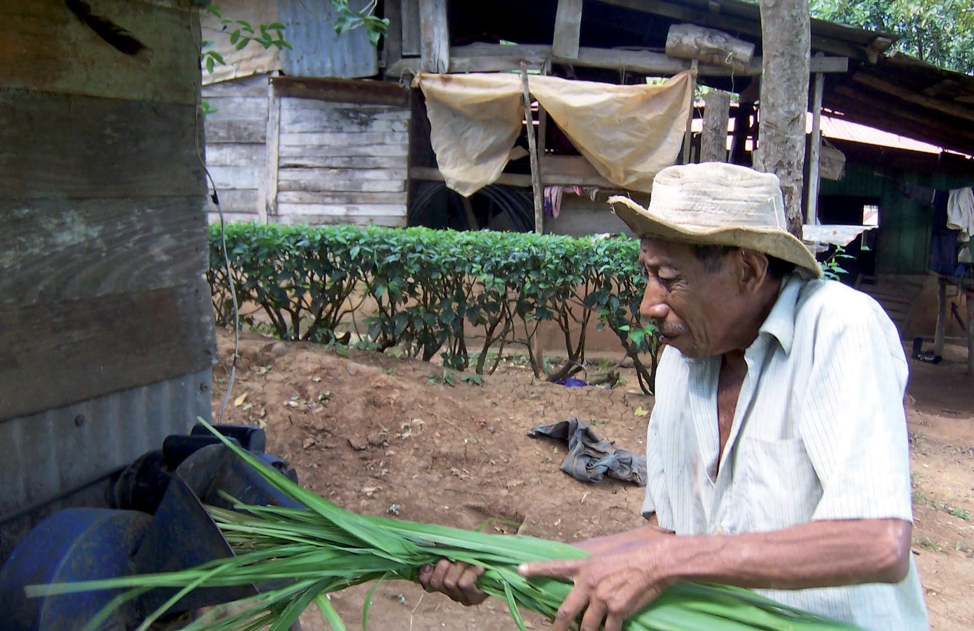Summary
The town of Yapacaní (in the subtropical region of Bolivia) holds approximately 10,000 families; 5,000 rural families depend solely on farming and are living in poverty, mainly due to their dependence on rice monocultures, which are highly vulnerable to climate change (i.e., affected by frequent floods and long periods of drought) and market price fluctuations.
In 2008 producers in the area, through the Asociación de Piscicultores del Norte Integrado (APNI), an association, in partnership with the Centro de Promoción Agropecuaria Campesina (CEPAC) center, chose to diversify their livelihoods through fish farming.
This had a series of impacts:
Providing Better Quality of Life for Fish-farming Families
The initiative promoted by CEPAC generated increasing fish-farming activities, which began with 15 families in 2008. The town of Yapacaní now has 200 families5 that focus on fish farming. Fish supply has increased from 25 to 720 tons per year (60% is locally consumed); increased availability has directly impacted per-capita consumption, which rose from 3.8 kg per year in 2008 to 8.6 kg per year in 2014.
The sale of fish generates US$15,000 in additional income per year for each family, compared with the average US$3,000 generated by a farming family per year. In turn, this activity promotes greater family integration, better education for children, improved health, higher-quality family housing conditions, and less emigration.
Between 2008 and 2014:
Fish supply has increased
from 25 a 720 tons/year
Fish consumption increased
from 3.8 kg to 8.6 kg/person/year.
The sale of fish generates an additional income of
US$ 15,000 / family / year
Empowering Women
In this town, fish farming has become an activity that is led by women. Before fish farming, women were not acknowledged as partners in economic organizations; 70% of husbands had doubts about this productive activity and in some cases made fun of women entrepreneurs.
Now they are formal partners and co-owners of productive assets with the same rights and duties as men.
Adopting New Technologies
APNI partner families had no fish-farming knowledge; they have learned to raise the “Tambaqui” (Piaractus brachypomus) species. Fish farming has become a resilient activity, as opposed to agricultural activities; it has decreased the expansion of the agricultural frontier that was dedicated to such extensive crops as rice and soybeans, and incorporated the efficient and sustainable use of water resources as a productive activity, by establishing fish farms, where fish are raised in captivity.
![]()
It is estimated that all 450 ponds (averaging 2,000 m2 each) generate a 90-hectare water mirror and contribute to a socially and environmentally sustainable economic activity.
![]()
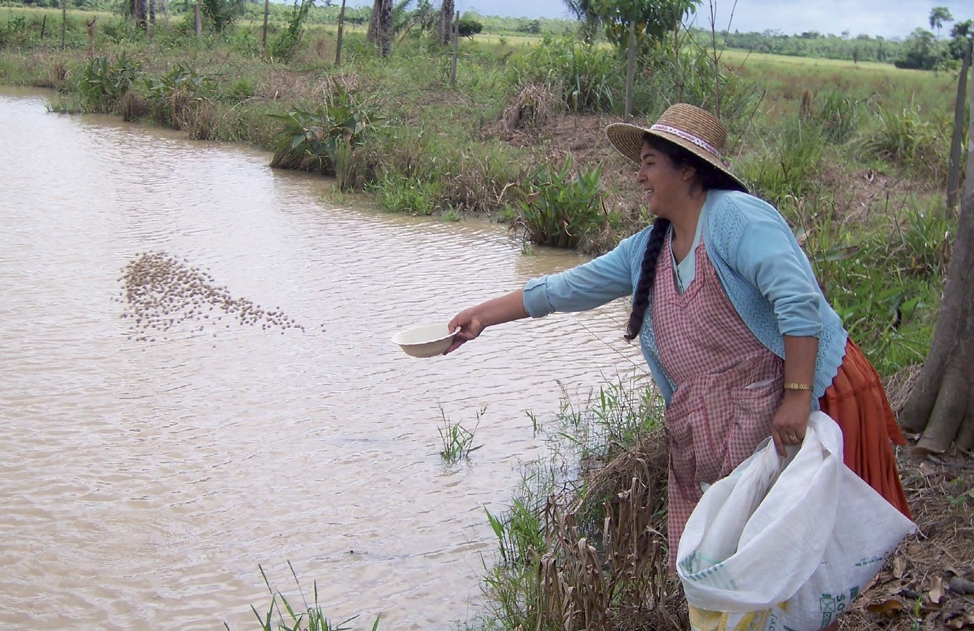
Overcoming the Vulnerabilities of Monoculture
Bolivia is a landlocked South American country. It is still one of the countries with the lowest fish consumption in the world. Its fish supply depends on freshwater ecosystems. Bolivia’s fish-farming potential to contribute to rural livelihoods and local food security has lagged behind that of neighboring countries (such as Chile, Peru, Argentina, and Brazil).
Its main bottlenecks are socio-economic barriers, institutional isolation, high cost and low quality of inputs, and the lack of appropriately trained technical support.
The town of Yapacaní is located between two very fragile areas: El Choré forest reserve (773,692 hectares) to the north, and Amboró national park (442,500 hectares) to the south. Both reserves are affected by the expansion of the agricultural frontier and micro basins’ subsequent deforestation, which causes a serious decline in water courses that supply urban populations, as well as an accelerated loss of soil fertility.


